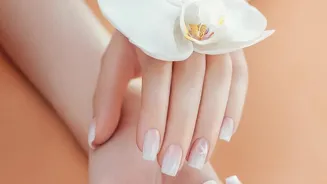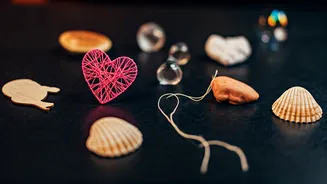Unlock the secrets to healthy, beautiful nails in the art of nail care. Dive into practical tips for strong, confident nails!
In the bustling tapestry of Indian life, where hands are constantly engaged
in a myriad of tasks – from preparing elaborate meals and intricate crafts to performing religious rituals and managing daily chores – nail care often takes a backseat.
Yet, healthy and well-groomed nails are not just a reflection of personal hygiene but also contribute to an overall sense of confidence and well-being. They are like tiny canvases, capable of showcasing personality and style.
This article delves into the art of nail care, offering practical tips and insights to achieve healthy, beautiful nails that can withstand the rigors of everyday life.
Maintain proper nail hygiene for healthy nails: wash, dry, brush gently
One of the foremost aspects of nail care is maintaining proper hygiene. Regular handwashing, using a mild soap and lukewarm water, is crucial. This helps remove dirt, grime, and bacteria that can accumulate under the nails, potentially leading to infections.
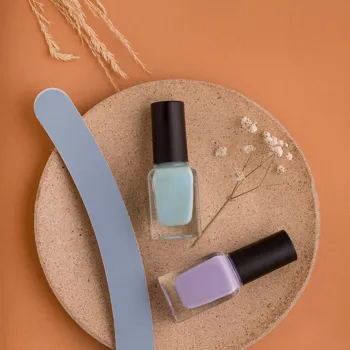
After washing, it's essential to thoroughly dry your hands and nails, as moisture can create a breeding ground for fungi. Additionally, consider using a soft nail brush to gently scrub under the nails, removing any lingering debris.
It's a simple habit that can make a significant difference in the overall health and appearance of your nails, preventing common issues like fungal infections and brittle nails. Remember to be gentle while cleaning; harsh scrubbing can damage the nail bed and surrounding skin.
Nourish nails with vitamins, minerals, and hydration for strength
Nourishment plays a vital role in nail health. Just like the rest of our body, our nails require essential vitamins and minerals to grow strong and resilient.
A balanced diet rich in protein, vitamins A, C, D, E, and B-complex, as well as minerals like iron, zinc, and calcium, can contribute significantly to healthy nail growth. Consider incorporating foods like leafy green vegetables, fruits, nuts, seeds, lentils, and dairy products into your diet.
In some cases, a healthcare professional may recommend specific supplements to address any nutritional deficiencies. Besides internal nourishment, external hydration is also important.
Regularly applying a moisturizing hand cream or cuticle oil can help prevent dryness and brittleness, keeping your nails supple and less prone to breakage. Look for products containing ingredients like shea butter, jojoba oil, or vitamin E.
Proper trimming & shaping maintain groomed nails; use sharp tools, file edges gently, avoid cutting short
Proper trimming and shaping are essential for maintaining well-groomed nails. Use sharp, clean nail clippers or scissors to trim your nails straight across, and then gently round the edges with a nail file. Avoid cutting your nails too short, as this can increase the risk of ingrown nails.
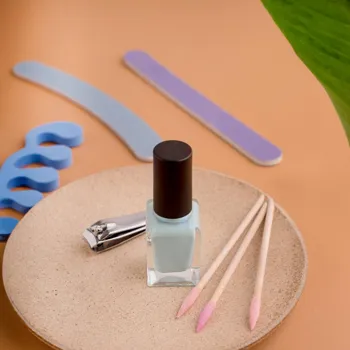
When filing, always file in one direction to prevent weakening the nail structure. The shape of your nails is a matter of personal preference, but generally, a rounded or squoval (square-oval) shape is less prone to breakage than a pointed shape.
Invest in good-quality nail clippers and files, as dull or poorly designed tools can damage your nails. Remember to disinfect your nail tools regularly to prevent the spread of bacteria.
Protect nails from chemicals and moisture, use gloves, avoid acetone, give breaks
Protecting your nails from harsh chemicals and excessive moisture is crucial. When doing household chores like washing dishes or cleaning, wear gloves to shield your nails from harsh detergents and prolonged exposure to water.
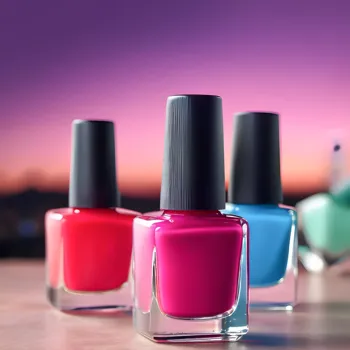
Long-term exposure to water can weaken the nail structure, making them brittle and prone to peeling. Similarly, avoid using harsh nail polish removers that contain acetone, as they can dry out the nails and cuticles. Opt for acetone-free removers instead.
When applying nail polish, use a base coat to protect your natural nails from staining and to help the polish adhere better. Give your nails regular breaks from nail polish to allow them to breathe and recover.
Avoid using nails as tools to prevent damage and injury
Avoid using your nails as tools. This is a common habit that can lead to nail breakage, splitting, and even injury to the nail bed. Resist the urge to use your nails to open cans, scrape off stickers, or pick at things. Instead, use appropriate tools for these tasks.
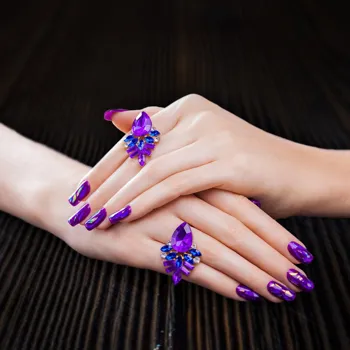
Biting or picking at your nails and cuticles is another habit that can be detrimental to nail health. It can damage the nail bed, increase the risk of infection, and lead to unsightly nails.
If you struggle with this habit, try finding alternative ways to manage stress or anxiety, such as fidget toys or relaxation techniques. A professional manicure can also help break the habit, as it makes you more aware of the appearance of your nails.
Monitor nail changes, seek professional help early for health
If you notice any unusual changes in your nails, such as discoloration, thickening, ridges, or separation from the nail bed, consult a dermatologist or nail specialist. These could be signs of an underlying health condition or a nail infection that requires professional treatment.
Early diagnosis and treatment can prevent the problem from worsening and ensure the health of your nails. Remember, paying attention to your nails and incorporating these simple tips into your daily routine can go a long way in achieving healthy, beautiful nails that you can be proud of.
So, embrace the art of nail care and let your nails reflect your inner radiance!
AI Generated Content. Glance/InMobi shall have no liability for the content